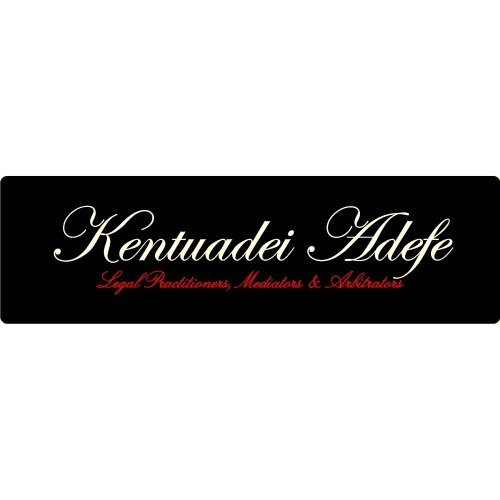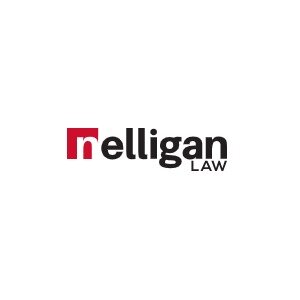Best Renewable & Alternative Energy Lawyers in Ottawa
Share your needs with us, get contacted by law firms.
Free. Takes 2 min.
List of the best lawyers in Ottawa, Canada

KENTUADEI ADEFE, FOREIGN LEGAL CONSULTANT ON NIGERIAN LAW
15 minutes Free ConsultationAbout Renewable & Alternative Energy Law in Ottawa, Canada
Renewable and alternative energy law in Ottawa, Canada, deals with the legal and regulatory aspects of producing, distributing, and using clean energy sources such as solar, wind, hydro, geothermal, and bioenergy. These laws are shaped by federal, provincial, and municipal policies aiming to reduce greenhouse gas emissions and foster sustainable development. In Ottawa, the adoption of renewable energy plays a crucial role in achieving climate change targets and transitioning to a greener economy. Whether you are an individual, a business, or a developer, understanding the legal landscape is essential for participating in or benefiting from the alternative energy sector.
Why You May Need a Lawyer
Engaging a lawyer experienced in renewable and alternative energy is often necessary due to the sector's complexity, the involvement of multiple levels of government, and strict regulatory requirements. Common situations where legal help may be required include:
- Navigating permits and approvals for renewable energy projects
- Negotiating land use and zoning for energy installations
- Understanding power purchase agreements and energy contracts
- Participating in government incentive or grant programs
- Addressing environmental impact assessments and compliance
- Dealing with disputes or litigation involving energy providers or other stakeholders
- Protecting intellectual property related to clean energy technologies
- Establishing partnerships or joint ventures in the green energy sector
Legal professionals can provide guidance, mitigate risks, ensure regulatory compliance, and represent your interests throughout various stages of renewable energy projects.
Local Laws Overview
Ottawa's renewable and alternative energy sector is shaped by a combination of federal, provincial, and municipal laws:
- Federal laws and programs: The Government of Canada sets national targets for emission reductions and provides frameworks like the Greenhouse Gas Pollution Pricing Act. The Canadian Environmental Assessment Act may require federal review of certain projects.
- Ontario provincial regulations: The Energy Board Act, Electricity Act, Environmental Protection Act, and Planning Act regulate aspects such as energy generation, environmental protection, grid access, net metering, and land use. The Ontario Energy Board and the Independent Electricity System Operator oversee market operations and system reliability.
- City of Ottawa policies: Ottawa's Climate Change Master Plan and Community Energy Transition Strategy support renewable energy adoption. Zoning by-laws and building codes affect where and how renewable systems can be installed. The city may also offer specific incentive or pilot programs.
All projects must comply with environmental standards, technical requirements, and land use planning rules. Public consultation and Indigenous engagement may also form part of a project's legal requirements.
Frequently Asked Questions
What types of renewable energy are common in Ottawa?
Solar and wind energy are the most commonly developed renewable energy sources in Ottawa, while hydropower is regionally significant. Biomass and geothermal projects are emerging but less widespread.
Do I need a permit to install solar panels on my home?
In most cases, installing solar panels requires permits at the municipal level. You must comply with zoning by-laws, building codes, and possibly heritage regulations, depending on your property's location.
Can I sell excess energy from my renewable system back to the grid?
Ontario offers net metering, allowing eligible customers to send excess electricity generated from renewable sources back to the grid in exchange for credits on their electricity bills. There are specific rules and application processes overseen by the Ontario Energy Board.
What incentives or grants are available for renewable energy projects?
Federal and provincial programs periodically offer grants, rebates, or tax benefits for residential, commercial, and community-based renewable energy projects. The specific availability and criteria may change, so consult with your lawyer or government resources for the latest information.
How do zoning laws affect renewable energy installations?
Zoning by-laws in Ottawa determine where renewable energy systems, such as solar panels or wind turbines, can be installed and under what conditions. These rules help balance development with neighborhood and environmental considerations.
Are there environmental assessment requirements for new energy projects?
Many large or commercial renewable energy projects require environmental assessments to identify and mitigate potential impacts. Requirements depend on the project's size, type, and location and may involve both provincial and federal review processes.
What role do Indigenous rights play in renewable energy development?
Projects on or near Indigenous lands, or those affecting Indigenous interests, may require consultation and accommodation with local First Nations or Métis communities. This process is required by law and is integral to renewable energy project approval.
Can businesses form partnerships for community energy projects?
Yes, businesses, cooperatives, municipalities, and community groups can collaborate on renewable energy projects. Such ventures often need clear legal agreements addressing ownership, revenue sharing, and responsibilities.
What disputes can arise in renewable energy projects?
Common disputes relate to land use, contract performance, environmental compliance, construction issues, and connection agreements. Legal support is crucial for dispute resolution, negotiation, or litigation.
How can I protect my intellectual property in renewable energy technologies?
Innovators can seek patent protection, copyright, or trade secret status for renewable energy inventions or processes. Legal guidance helps identify the best strategy and manage filings and enforcement.
Additional Resources
Those seeking legal or regulatory information about renewable and alternative energy in Ottawa may find the following resources helpful:
- City of Ottawa - Planning, Real Estate and Economic Development Department
- Ontario Ministry of Energy
- Ontario Energy Board
- Independent Electricity System Operator
- Natural Resources Canada
- Canadian Renewable Energy Association
- Ontario Sustainable Energy Association
- Canada Environmental Assessment Agency
- Legal Aid Ontario (for qualifying individuals)
Next Steps
If you need legal assistance in renewable and alternative energy in Ottawa, Canada, consider the following steps:
- Identify the specific area where you require assistance - such as permitting, contracting, land use, or environmental compliance.
- Gather relevant documents and information about your project or concern.
- Consult with a lawyer who specializes in renewable energy law, environmental law, or municipal law. Many offer an initial consultation to help assess your needs.
- Stay informed about new developments in laws and incentives by reviewing resources from trusted government and industry organizations.
- For complex or large-scale projects, consider assembling a multidisciplinary team including legal, technical, and financial advisors.
By taking these steps, you increase your chances of success, can better navigate regulations, and protect your interests in Ottawa's growing renewable and alternative energy sector.
Lawzana helps you find the best lawyers and law firms in Ottawa through a curated and pre-screened list of qualified legal professionals. Our platform offers rankings and detailed profiles of attorneys and law firms, allowing you to compare based on practice areas, including Renewable & Alternative Energy, experience, and client feedback.
Each profile includes a description of the firm's areas of practice, client reviews, team members and partners, year of establishment, spoken languages, office locations, contact information, social media presence, and any published articles or resources. Most firms on our platform speak English and are experienced in both local and international legal matters.
Get a quote from top-rated law firms in Ottawa, Canada — quickly, securely, and without unnecessary hassle.
Disclaimer:
The information provided on this page is for general informational purposes only and does not constitute legal advice. While we strive to ensure the accuracy and relevance of the content, legal information may change over time, and interpretations of the law can vary. You should always consult with a qualified legal professional for advice specific to your situation.
We disclaim all liability for actions taken or not taken based on the content of this page. If you believe any information is incorrect or outdated, please contact us, and we will review and update it where appropriate.








